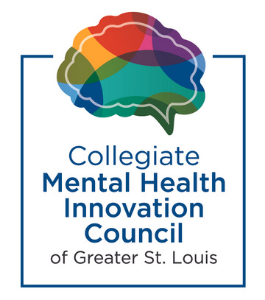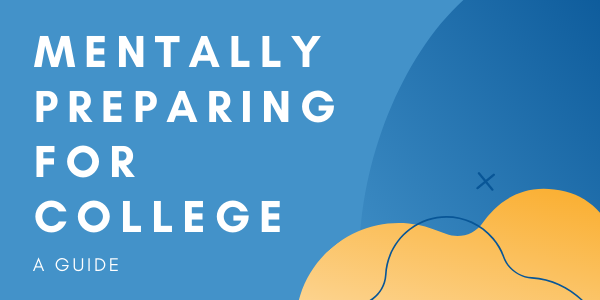Mental health issues are on rise nationally across college campuses throughout the country. Living in a new outside the familiarity of home can often create overwhelming and stressful circumstances. There are, however, strategies students can implement to succeed including having a mental health plan, knowing tactics that boost performance, being a mental health advocate, and taking a mental health screening.
Mental Health Checklist
Whether you are just starting your college career or returning to campus after being diagnosed with a mental illness, having a plan in place for how to manage your mental health is key to setting yourself up for success.
1. Find out what mental health services your school offers
Research whether or not your school has mental health services available to students. A quick online search for the school’s counseling services or a phone call to the school can answer your questions. For those that do not offer services, ask for local providers to whom they can refer to you. If counseling services are available, important questions to ask include:
- How many individual therapy sessions are available per student and at what cost?
- How long is the typical wait for an individual therapy session?
- Are there emergency or walk-in hours?
- Is there a psychiatrist on campus that students have access to? If not, do they make referrals to psychiatrists in the community?
- Do they offer group therapy on an issue that is relevant to you?
- Do they offer additional services like psychoeducation or stress management events? If so, what topics do they focus on?
- Are resident assistances and campus security officers trained in mental health first aid?
2. Make a mental health plan
Talk with your personal support network and current providers to create a mental health plan you are comfortable with and can execute. Figure out the five W’s: who, what, when, where, and why.
- Who: Decide if you will continue working with your current providers in person and/or virtually. If you plan on finding new providers, speak with several providers to find the best fit before concluding services with your current contacts. Your school or insurance provider may have recommendations for mental health service providers in the campus area.
- What: Think about what specific tools you will use, like talk therapy or medication. You can also take advantage of technology with options like mood tracking apps, phone alarms, and calendars to keep track of your plan.
- When: Determine how often you will meet with members of your team. This may vary based on services. For example, you may meet with your therapist once or twice a week and your psychiatrist once or twice a month.
- Where: Consider transportation, especially if you do not have access to a car, make sure you will be able to get to your appointments. What may seem like an easy distance to manage might be much harder when transportation and costs are considered. Additionally, if you take medication, you should find the nearest pharmacy.
- Why: Remind yourself of your goals and why it is important for you to maintain your mental health. Write down and carry some of the positive ways you cope with stress, adversity, and symptoms for quick reference during stressful times.
3. If applicable, factor in your medication
You might be surprised to find out that nearly 33% of college students have taken a prescribed medication for mental health concerns. If you use medications to help manage your mental health disorders, ensure that you have enough of a supply (including refills) to last until you are able to see your doctor again. Do not stop taking your medications suddenly. Just as medications themselves may have side effects, stopping them suddenly can also have side effects. This is known as discontinuation syndrome. If you would like to try managing your mental health disorder without medication, speak to a psychiatrist about the safest way to stop or other options. If you feel like your medication is not working as well as it should be, speak to your doctor to possibly readjust dosage or medication. Do not increase your dose on your own.
4. Get connected
Do not deal with your mental health disorder alone.
- Keep in touch: Keep in touch with the people that you normally turn to at home even while you are living on campus. Coordinating time differences and schedules can be tough, so you may want to set up a regular time each week to connect in person or virtually.
- Talk to your roommate or friends on campus: You may feel vulnerable telling new friends on campus about your mental health disorder, but mental health diagnoses in university communities are quite common. As many as 48% of college students have attended counseling for mental health concerns.
- Resident Assistants (RAs): Don’t be afraid to approach your dorm’s RA early on to let them know you sometimes struggle and may need them to lend an ear from time to time. Giving them a head’s-up also allows them to learn more about what you are going through and prepares them to be more helpful.
- Support groups: Your campus health or counseling center may organize support groups for students with depression, anxiety, or other disorders.
5. Explore additional services offered at your school
Mental health can be influenced by a variety of factors. Find out what your school offers in the following areas:
- Academic: Many colleges offer disability support services. If you are comfortable disclosing your mental health disorder to your school, you may be given an advisor to provide you with extra support in scheduling classes, receiving accommodations as needed, and working with professors. In addition, consider attending the office hours of your professors and workshops on writing or studying.
- Physical health: For some, college may be the first time you are responsible for your own meals; cooking may seem intimidating and dining halls can be overwhelming. Many experience changes in appetite or experience weight gain or loss while adjusting to college life. But remember, your focus should be on staying healthy so be sure and try to drink plenty of water, stay active, and fuel with a balanced diet. A healthy body helps support a healthy mind.
- Social life: Because social support is important, you should look into clubs, societies, and activities for students. This is a great time to find others with similar interests and make new friends.
Boosting Academic Performance
Taking care of your body and mind can make a difference in how well you perform academically in school. Exercising, eating nutritionally, getting enough rest, and relaxing will help you do better and enjoy school more!
1. Regular exercise:
- Elevates mood, reduces stress, increases energy level, and stimulates the release of endorphins and serotonin, which make you happier.
- Increases alertness and creativity.
- Improves your overall mental and physical well-being. Even taking a 15-minute walk, 3 times a week, can help.
- Like playing intramural sports, keeps you active and also creates more opportunities to meet new friends!
- Decreases stress. On days when you are feeling overwhelmed, hit the gym.
2. A healthy diet:
- Improves your ability to learn.
- Means eating a nutritious breakfast daily. Skipping meals leads to a lack of energy.
- Includes eating something nutritious every time you are in the cafeteria. Try vegetables from the salad bar or an apple from the fruit stands.
- Means limiting your alcohol intake.
- Avoids excessive amounts of caffeine. Caffeine dehydrates you. Drink at least 8 glasses of water a day to prevent dehydration.
3. Plenty of rest:
- Means getting at least 7-9 hours of sleep. This is essential and will make you more attentive and active. Inadequate sleep can lead to mood changes and lowered resistance to illness.
- Means you have more physical and psychological resources to cope with everyday life. Without it you will work harder to get school assignments accomplished.
4. Relaxation:
- Means taking short study breaks, especially when you feel stuck.
- Means taking time each day to unwind, especially before sleeping. Listen to music, read, or do whatever you enjoy.
- Means getting a good laugh. Laughing decreases pain and can reduce anxiety.
5. Mental health:
- If you find that you are struggling emotionally or you are unable to cope, reach out to others for help. Seeking help is a sign of strength. Talk with someone you trust, and go to your college counseling service or doctor.
Become a Mental Health Advocate
 The Collegiate Mental Health Innovation Council of Greater St. Louis is a great opportunity for college students to create change on how mental health is perceived on college campuses and remove barriers to treatment that can help students achieve recovery and pursue their dreams.
The Collegiate Mental Health Innovation Council of Greater St. Louis is a great opportunity for college students to create change on how mental health is perceived on college campuses and remove barriers to treatment that can help students achieve recovery and pursue their dreams.
Today’s college students experience record-high levels of stress, depression, and anxiety. Early signs of some mental health conditions like bipolar disorder and schizophrenia begin during young adulthood, and early detection is key to recovery.
For many students, shame and fear of stigma from peers leads to suffering in silence. Stop hiding and start talking.
If you attend a college in the St. Louis area, consider joining the Collegiate Mental Health Innovation Council of Greater St. Louis.
Mental Health Screening
Many people do not seek treatment in the early stages of mental illnesses because they do not recognize the symptoms. The delays in treatment for mental illnesses are two to four times longer than for many other health conditions.
Taking a screening can help catch mental health problems early—B4Stage4. Screening is an anonymous, free and private way to learn about your mental health and if you are showing warning signs of a mental illness.
A screening only takes a few minutes, and after you are finished you will be given information about the next steps you should take based on the results. A screening is not a diagnosis, but it can be a helpful tool for starting a conversation with your doctor or a loved one about your mental health.
